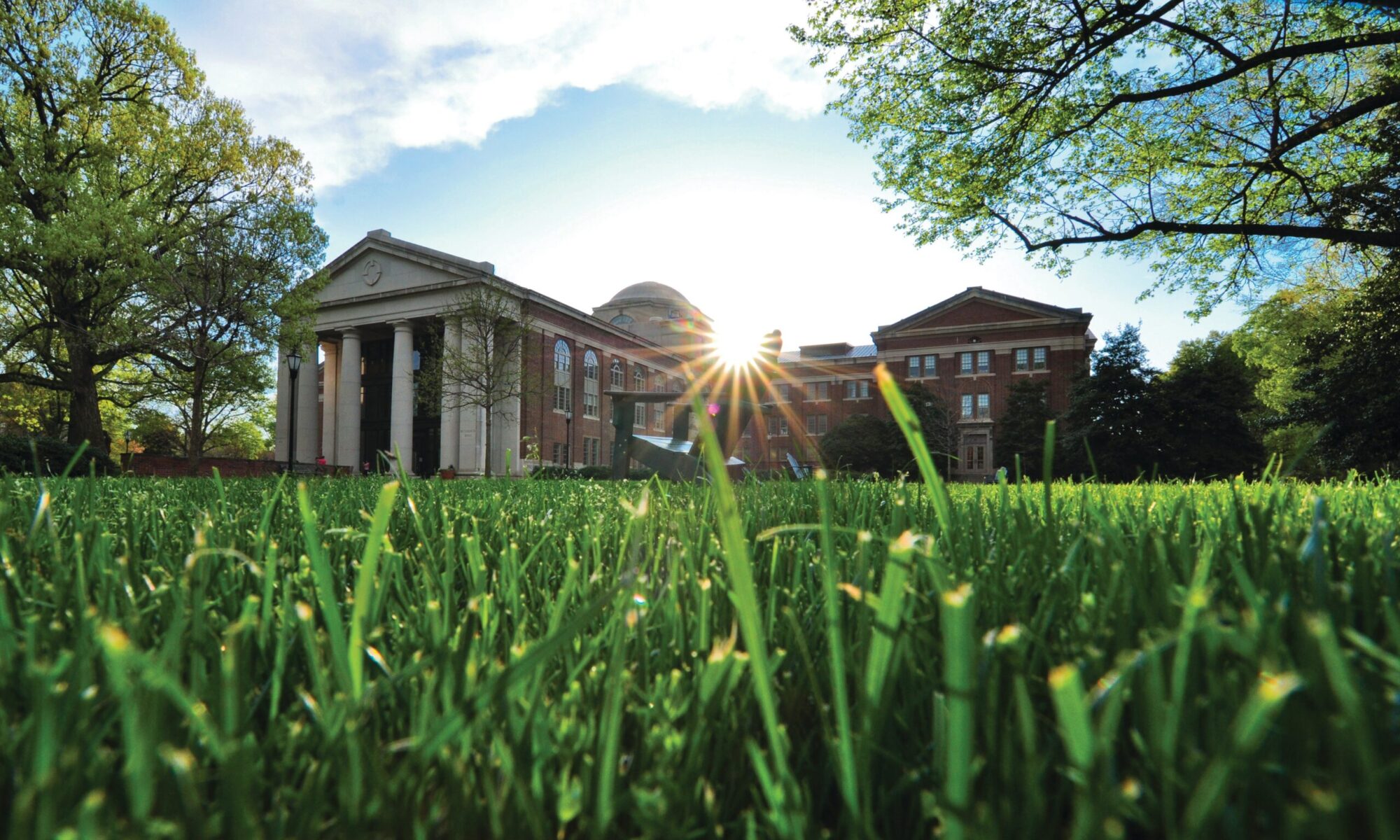Read about CCD Student Associate David Thole, and his 2018 summer research experience!
Ever since beginning high school, there was a word – an idea, almost an unachievable goal for how fantastic it seemed at the time – that always fluttered out in some fantasy world for me. Research. It’s something that many colleges preach as a competitive factor at their school – ‘students have the opportunity to participate in faculty-led research, or generate ideas of their own, and pursue them through different programs’ – and it’s hailed as an almost necessary experience in order to pursue higher education.
And, for good reason! Research is hard. Seriously hard, and it teaches you a lot about yourself and the topic you’re researching. This past year, I began to discover a love for the field of chemistry and started a conversation with one of my professors, Dr. Mitchell Anstey, about a research position during the summer. After writing a mock proposal, I was accepted onto his research team and participated in a ten-week faculty-led research experience over the summer. During the ten weeks, I continued working on a project that had already been started by another student, Claudia Hernandez, involving the molecular synthesis of a complex ligand that had potential for electrochemical implementation (pun intended, for the physicists and chemists reading this). There are, of course, some nitty gritty details regarding the chemistry of the project, but I don’t want to focus on that (you can swing by Wall 246 and see my poster if you’re interested though!). Rather, this summer was the first time where this previously unattainable and idealized experience was suddenly thrust in front of me. Through the experience, I learned a lot more than just chemistry and I also started to really understand why research experience was regarded so highly by potential employers and graduate schools.
Patience was the first trait that was tested during the summer. Patience is a virtue, they say. Well, when you spend two weeks (80 hours!) trying to find the right conditions to run a reaction, and you can’t seem to find anything that works, patience definitely isn’t the first thing that comes to mind. However, that’s the nature of research. Some things work, and some things are a complete bust. Kind of like life, right? I consider myself a pretty patient person, but kudos to my labmates this summer for tolerating my less-than-flowery word choice in situations where things didn’t quite go my way. If you get involved in a research project, failure and setbacks are inevitable, and people know that. This is one of the reasons why a research experience can be extremely valuable.
Obviously, another thing that research requires – and shows to higher institutions – is a supreme level of intellect that separates you from others, right? Wrong! Very wrong. I’ve said it before, and I maintain this perspective; I think anyone could’ve done exactly what I did this summer with similar results. In reality, what my research required – and what I think any research requires – is interest, a positive attitude, and a killer work ethic. You are the one in control of your project, so you decide how to use your time and what you accomplish is directly correlated to how much time you put into it. Now, I’m a big procrastinator, so research this summer was definitely a wake-up call. At times where I felt tired, or unsure of how to continue, what I had to do was push past that rather than let my fatigue or boredom control my decision. Because, face it, research can also be seriously boring. For the rest of our lives, we’re going to inevitably have times where we are at a fork in the road faced with decisions, and pushing through perceived discomfort will help us become stronger and more resilient people.
I just wanted to touch on one more aspect of research. Like I said earlier, there is such a huge emphasis on finding research opportunities – from your high school, from your undergraduate institution, and from institutions moving forward. However, from my experience this summer, I really don’t think that research should ever be this concept anyone holds on a pedestal and sees as a necessary requirement for continuing their educations or pursuing any dream (of course, if you want to do research for a living, it’s kind of important, but that’s a completely different story). I’m interested in PA school, and with that in mind, I think a clinical internship or some sort of medical experience would have been substantially more helpful towards my future career. Of course, I could’ve loved research and wanted to do it for the rest of my life. And research is such a crucial field for the betterment of society, which is another reason why it’s so highly regarded by higher institutions, so I am glad that I was able to learn more about myself and about research this past summer. However, I just want to affirm that you should never feel discouraged or disappointed if you are unable to get a research position during your undergraduate experience.
That being said, if you do want research, Davidson is an incredible place to get that process started! Study hard, latch onto something that seems super cool, go to office hours, and start that conversation with your professor. You should also never feel like you’re not good enough for research either, because I seriously believe that anyone can research and make some awesome discoveries. Also, research can be in any field, and there’s something so transformative about creating knowledge for yourself – and making a project personal – as opposed to just being fed information in a classroom setting. You’ll never know what you’ll discover when you take that extra step.

